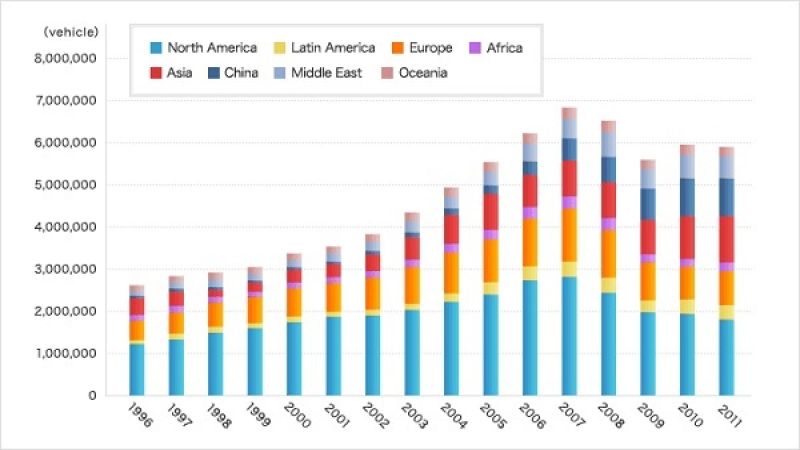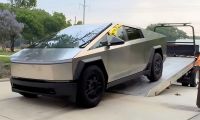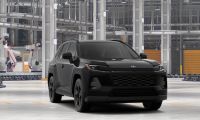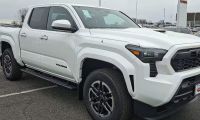I never realized it until today, but I have something in common with Toyota Motor North America’s CEO, Jim Lentz. At least I did when I was still involved in selling goods for a Japanese company in the U.S.. In an interview published this week by Toyota’s PR group, Lentz was asked “What keeps him up at night.” The simple answer? Forecasting.
The more complicated answer to what keeps Toyota’s N. America operations CEO up is what cars to build given that the price of oil drives the demand for various vehicle types (in part). As we explained recently, Toyota is presently the number one retailer of automobiles in the U.S. This is due to a number of factors, but one thing is for sure, if Toyota had focused on sedans (like Cadillac did) or electric vehicles (like BMW did) its sales would not be where they are today. Toyota predicted that buyers would want crossovers and small trucks before the demand exploded. Toyota then invested billions to update the RAV4, max-out production of the Tacoma and create the Lexus NX-series as an entirely new premium crossover. And meanwhile had the guts to keep building hybrids.
Answering the question about what keeps him up at night in full, Mr. Lentz said:
“Today it’s the price of oil, for a lot of different reasons. Obviously, it’s difficult for us to forecast demand – on trucks and SUVs especially – not knowing exactly where it’s going to fall out. But probably the more difficult part about that is it may mask trends in the marketplace that we can’t see because of it.” He went on to add, “The biggest segment in the marketplace for years and years has been midsize passenger cars. Now because of the tremendous growth of small SUVs, small SUVs are. So what’s causing that? Is it the price of gas? Some might think that. But when you look at small SUVs and midsize cars, the vehicles are about the same size today. They’re about the same price. They actually get about the same mileage. They have the same creature comforts. So today we’ve got to figure out for the future, when gas normalizes, are people going to move back to passenger cars or are they going to stay in small SUVs?”
So the hardest thing about running the largest branch of the largest car company on Earth is forecasting.











